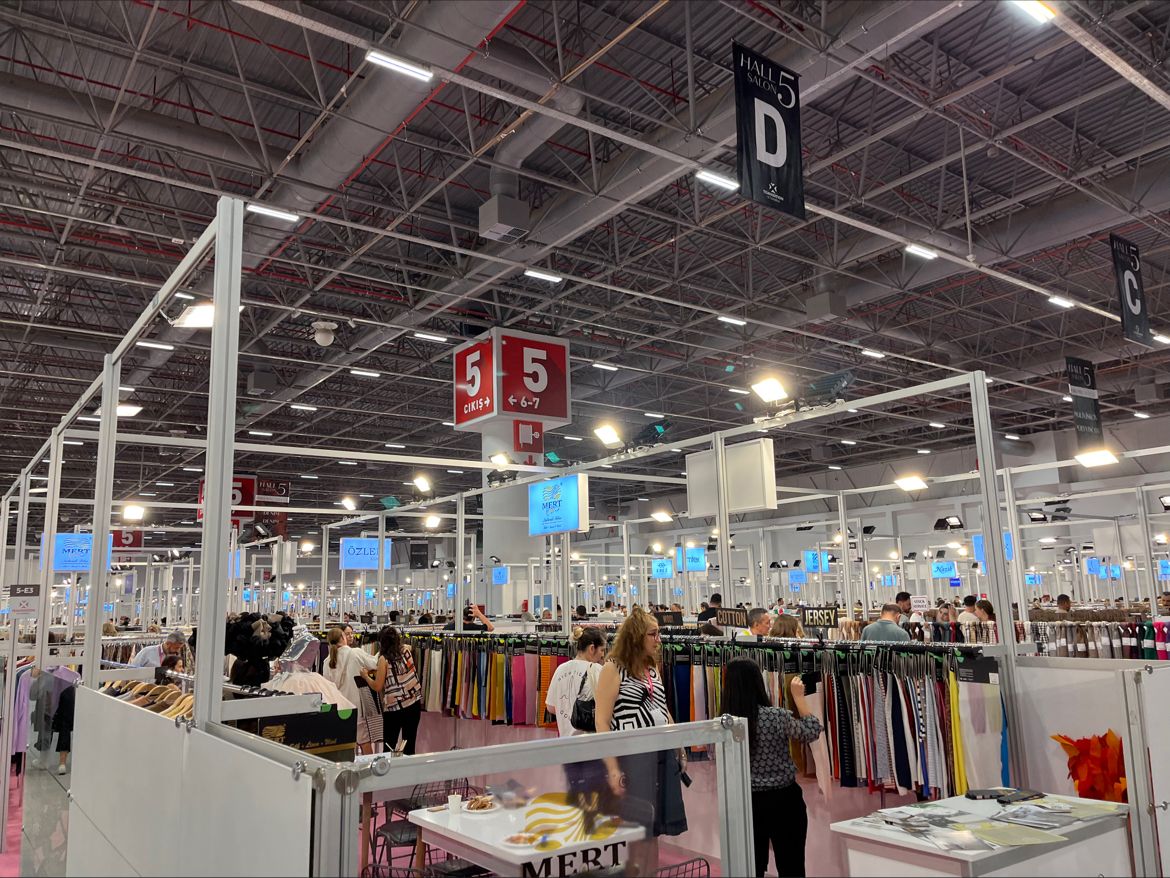
I was lucky enough to be able to visit Istanbul last week for the bi-annual textile fair, Texhibition, which since its inception in 2022 has seen its visitor numbers soar.
This September’s fair, whose registered visitor numbers stood at 25,000, followed the February show which took place just days after the 7+ magnitude earthquakes.
What was so pleasing to see is the recovery textile producers in the region have made in such a short space of time.
Kipas Textiles, one of the largest fully-integrated production facilities in Türkiye, has a site in Kahramanmaraş and Şeyda Zümrütoğlu, head of sales and marketing at Kipas said while the company was “shocked” in the immediate aftermath of the quakes, it is now close to returning to full capacity, just over six months later.
Kipas is now back up to around 85% of its usual production capacity and Zümrütoğlu estimates that they will be back up to 100% by the end of October, with the help of a new mill which will be installed soon.
However, the company is still working to help colleagues impacted with practical support such as new bus services for staff forced to relocate. Zümrütoğlu says the affected area is also still facing serious social problems and the company is supporting the wider community.

US Tariffs are shifting - will you react or anticipate?
Don’t let policy changes catch you off guard. Stay proactive with real-time data and expert analysis.
By GlobalDataAs Türkiye has ambitions to increase its share of the textile export market this ability to bounce back will certainly help.
Naturally, I was curious about how the buyer-supplier relationship was impacted by the quakes. Sadly Zümrütoğlu notes there can be a “cruel side to the industry” and that the effect of the quakes, some seven months on now, has been almost forgotten and some clients are a little less understanding about delays and logistical issues that continue to linger.
Just a few weeks ago, some fashion brands were criticised for failing to protect suppliers in Türkiye after the earthquakes, and this meeting with Kipas served as a reminder of the people behind these stories.
Top news stories on Just Style last week
Isotopic testing shows ten of 37 garments contain Xinjiang cotton
The US Border and Customs Protection (CBP) has turned to Isotopic testing in its efforts to crack down on garments made with cotton from the Xinjiang Uyghur Autonomous Region (XUAR), which has long been scrutinised for forced labour practices.
ACT, IndustriAll rally for minimum wage hike for Bangladesh RMG sector
Members of the Action, Collaboration, Transformation (ACT), with the support of the IndustriALL Global Union are urging a minimum wage increase for Ready-Made Garment (RMG) workers in Bangladesh.
UK sets sights on waste reduction with ‘first’ green textiles factory in Hull
Yorkshire-based waste management firm, MYGroup, is establishing a sustainable textiles factory in Hull, with a £500k ($623k) investment.
Up to $65bn in apparel export earnings at risk due to extreme heat, flooding
Cornell University’s Global Labor Institute (GLI), in partnership with the global investment firm Schroders, has published two reports on the impacts of climate change on global apparel production and suggests extreme heat and flooding are threatening key apparel production hubs.
Signal: Nike shareholders reject assessment of supply chain due diligence efforts
A proposal for US sportswear brand Nike to issue an assessment of its supply chain due diligence was not approved at its annual meeting of shareholders.
US FABRIC Act revived in bid to protect domestic garment workers
US Senator Kirsten Gillibrand has reintroduced the Fashioning Accountability and Building Real Institutional Change (FABRIC) Act to combat subminimum wages, enhance transparency, and support domestic garment manufacturing.
Spinnova, Renewcell to commercialise textile waste fibres by 2025
Finnish fibre maker Spinnova has joined forces with Swedish textile recycling innovator Renewcell to develop and scale what they describe as a “first of its kind” textile waste-based fibre that can be spun into new fibre without harmful chemicals.
Signal: Draper James potential ‘a lot bigger’, may be realised under Consortium Brand Partners
Industry experts believe Consortium Brand Partners could ramp up investments and help Draper James reach a wider audience with some additional expertise hence making for an “attractive partner” in this deal.



